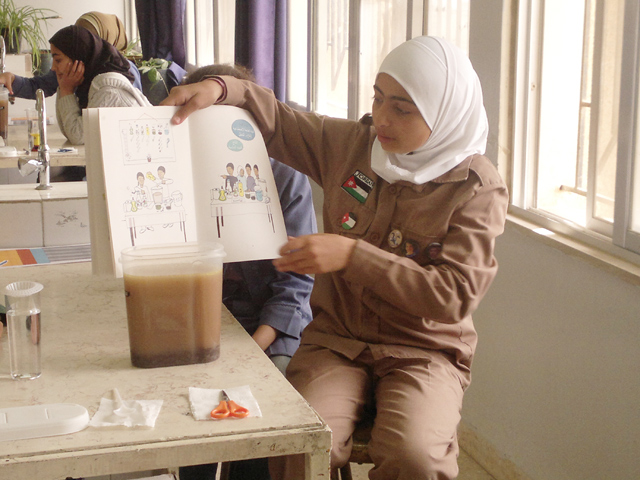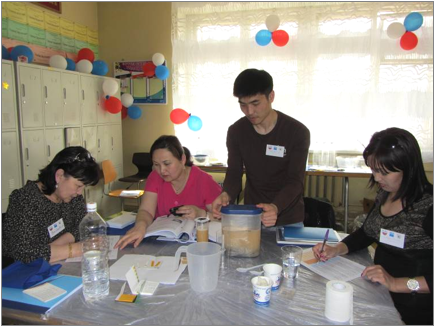Didactic-methodological principles
Sustainable development is development that meets the needs of the present without compromising the ability of future generations to meet their own needs.
(United Nations, Brundtland Commission Report, 1987)

In this context, one of the key goals of Education for Sustainable Development is to provide individuals skills that will enable people to shape their future activities and responsibilities adequately.
Being responsible means considering that future generations have the same right to natural resources as we do today. These skills can already be initiated in primary school if age-appropriate methods are employed. Methods that merely convey knowledge (for example, ex-cathedra teaching of facts and of dos and don’ts) do not achieve this goal. Instead, students must have the opportunity to develop their own ideas in the classroom and to exchange these ideas, reflect on them and put them into practice immediately. The targeted students’ skills must address all areas of the development of primary schoolchildren: practical (hands-on), cognitive (minds-on) and emotional (hearts-on). Students are viewed holistically as learners here.

Water Fun – hands, minds and hearts on Water for Life! provides student-friendly media and materials. It is strongly oriented towards students’ experiences, previous knowledge and existing skills by using innovative, proven teaching techniques and learning methods. Students are encouraged to develop an interest in and enjoy …
… Thinking about natural and engineering phenomena
… Asking questions
… Developing self-confidence
… Investigating and understanding things
… Adopting research-based thinking
… Taking up challenges in thinking processes
… Learning to experiment
Water Fun – hands, minds and hearts on Water for Life! supports these required learning processes:
1. The teaching content is based on the reality of the students’ lives.
The artificial wastewater produced by the students contains components that they can find in wastewater at home too.
2. The ideas and observations of students are taken into account.
Students already have certain individual experience with wastewater, which they can then use as input during wastewater production, analysis, filtration processes, final assessment and future actions. This will expand their knowledge and facilitate learning.
3. Independent thinking and action must be encouraged.
During their group work, students need time and space to express and discuss what they are thinking. The teacher moves away from a teacher-centred teaching position; instead, she/he becomes an advisory partner who facilitates learning.
4. The teacher acts in a restrained manner in order to give students a chance to learn how to discover, investigate and explain things for themselves.
No student learns how to discover, investigate or explain things for themselves from instructions and explanations by teachers. These steps have to be carried out by the students themselves, supported by open questions from the teacher .
5. Students must be given the opportunity to discuss and learn about the statements of others.
In this way, students develop an understanding of new contents, cooperative learning and working processes in accordance with their individual knowledge level.
In summary:
Education (ESD) has to allow students to engage in problem-based learning and has to be student-centred, skill-based and experience-based in this regard.
